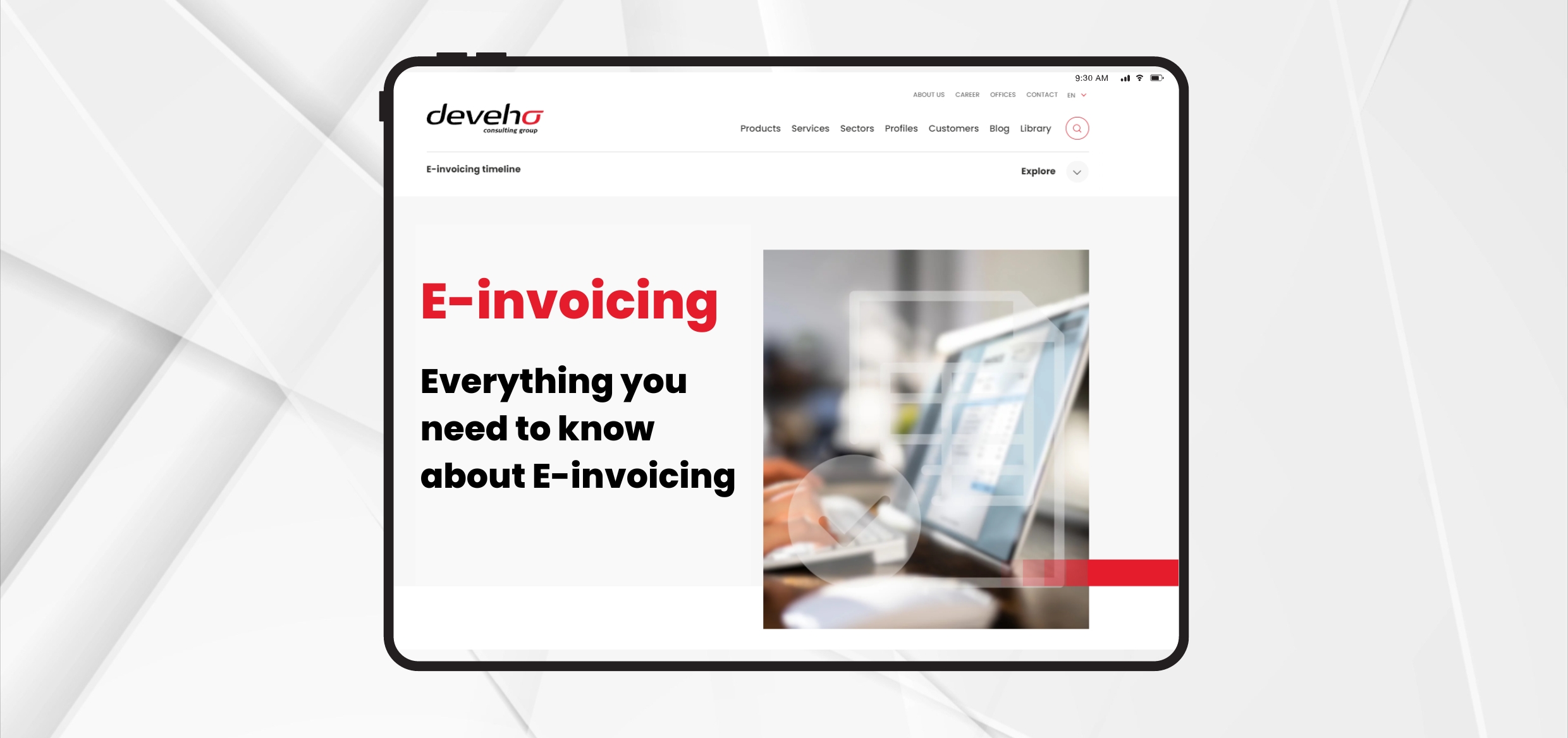Všetko, čo potrebujete vedieť o elektronickej fakturácii

S povinným zavedením B2B elektronickej fakturácie vo Francúzsku od
Po prvé, povinná elektronická fakturácia zjednoduší spracovanie prichádzajúcich a odchádzajúcich faktúr a podávanie priznaní k DPH. Umožní tiež bezproblémovejšiu integráciu faktúr do účtovných systémov, čím umožní priebežné kontroly súladu a väčšiu transparentnosť pre zákazníkov, pokiaľ ide o stav spracovania ich faktúr.
Je dôležité porozumieť špecifickým požiadavkám na elektronickú fakturáciu nielen vo Francúzsku, ale aj v celej Európe. Príprava už teraz zabezpečí podnikom hladký prechod na túto novú paradigmu fakturácie, čo im umožní zostať konkurencieschopnými na neustále sa meniacom trhu.
Nové požiadavky na elektronickú fakturáciu znamenajú, že faktúry musia byť plynulejšie integrované do účtovných systémov a ich súlad musí byť vopred kontrolovaný, aby sa predišlo chybám a sporom.
Okrem toho musia byť spoločnosti schopné poskytnúť svojim zákazníkom úplný prehľad o stave spracovania ich faktúr, čím sa zvýši dôvera a spokojnosť zákazníkov.
Prispôsobením svojich systémov a postupov tak, aby spĺňali tieto nové požiadavky, môžu organizácie nielen dosiahnuť súlad s predpismi, ale aj zvýšiť svoju prevádzkovú efektivitu a konkurencieschopnosť na trhu.
Zistite viac o nových požiadavkách!
Elektronická fakturácia má množstvo vlastností, ktorými sa líši od tradičnej papierovej fakturácie. Tu sú niektoré z kľúčových vlastností e-fakturácie
Stručne povedané, e-fakturácia sa vyznačuje dematerializáciou, automatizáciou, integráciou s IT systémami, definovanými štandardmi a formátmi, bezpečnosťou údajov, sledovateľnosťou a jednoduchou archiváciou. Tieto vlastnosti pomáhajú zvyšovať efektivitu, presnosť a bezpečnosť fakturačných procesov vo firmách.
Je dôležité poznamenať, že výber formátu elektronickej faktúry môže závisieť od regulačných požiadaviek, preferencií obchodných partnerov a schopnosti IT systémov efektívne ich spracovať.
Štruktúrované formáty (UBL, EDIFACT, CII atď.), ktoré sú čitateľné iba strojom.
Zmiešané formáty pozostávajúce zo štruktúrovaných údajov a PDF súboru čitateľného na obrazovke, ako je napríklad francúzsko-nemecký štandard Factur-X.
Platformy vznikajú preto, aby podnikom umožnili využívať výhody elektronickej fakturácie jednoduchým a bezpečným spôsobom.
Výmenu faktúr medzi spoločnosťami zabezpečujú súkromné platformy alebo Partner Dematerialization Platforms (PDP), ktoré musia byť zapísané v oficiálnom zozname.
Prenos fakturačných údajov, ktorý umožní sledovať „pulz ekonomiky“, bude zabezpečovať verejná platforma – Verejný fakturačný portál (PPF). Iba táto verejná platforma bude vymieňať dáta s Generálnym riaditeľstvom pre verejné financie (DGFiP). Medzi súkromnými platformami a touto verejnou platformou sa vytvorí automatické prepojenie.
Vďaka zapojeniu francúzskych tímov do prípravných prác iniciovaných DGFiP, bude Sage PDP poskytovať všetky základné služby garantované už od prvého pripojenia, a to s pokročilou ergonómiou a spoľahlivosťou.
Nakoniec, Sage PDP doplní základné služby o rad služieb s pridanou hodnotou, ktoré spoločnosti naplno prenesú do éry medzipodnikovej výkonnosti. Z revolúcie v sieťovaní informačných systémov budú pravdepodobne profitovať aj iné procesy než len fakturácia, napríklad pokladňa (treasury) a nákup.
Deveho Consulting Group vám môže pomôcť s vašou digitálnou transformáciou. Máte otázku? Máte konkrétnu potrebu? Kontaktujte nás!